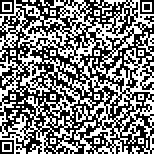下载中心
优秀审稿专家
优秀论文
相关链接
摘要

作物生物量快速精确的监测对于农业资源的合理利用与农田的精准管理具有重要意义。近年来,遥感技术因其独特的优势已被广泛用于作物生物量的估算中。本文主要针对不同宽波段植被指数在冬小麦生物量(文中的生物量均是指地上干生物量)估算方面的表现进行探索。首先利用欧洲空间局最新的Sentinel-2A卫星数据提取出17种常见的植被指数,之后分别构建其与相应时期内采集的冬小麦地上生物量间的最优估算模型,通过分析两者间的相关性与敏感性,获取适宜进行生物量估算的指数。最后,绘制了研究区的生物量空间分布图。结果表明,所选的植被指数均与生物量显著相关。其中,红边叶绿素指数(CIre)与生物量的估算精度最高(决定性系数R2为0.83;均方根误差RMSE为180.29 g·m-2)。虽然相关性较高,但部分指数,如归一化差值植被指数(NDVI)等在生物量较高时会出现饱和现象,从而导致生物量的低估。而加入红边波段的指数不仅能够延缓指数的饱和趋势,而且能够提高反演精度。此外,通过敏感性分析发现,归一化差值指数和比值指数分别在作物生长的早期和中后期对生物量的变化保持较高的敏感性。由于红边比值指数(SRre)和MERIS叶绿素敏感指数(MTCI)在冬小麦全生长季内一直对生物量的变化保持高灵敏性,二者是生物量估算中最为稳定的指数。
关键词:
Sentinel-2 冬小麦 植被指数 地上生物量 红边波段Crop biomass plays an important role in food security and global carbon cycle, and the timely and efficient monitoring of biomass is crucial for precise and reasonable agricultural management. Recently, remote sensing technique has been proven to be an effective tool for biomass estimation and it can decrease the conduct of field surveys. The European Sentinel-2A satellite was successfully launched in late June 2015.This satellite can provide high spatial resolution (10 m, 20 m, and 60 m) data freely. It uses a thirteen-band spectrum ranging from the visible region to the short-wave infrared region and thus is useful in imaging planted regions with high fragmentation. For this reason, the main objective of this paper is to explore the potential of winter wheat biomass estimation based on the new Sentinel data.
In this study, 17 Vegetation Indices (VIs) based on the combinations of canopy reflectance in blue, green, red, red-edge, and near-infrared bands were first derived from the Sentinel-2A imagery in April and May 2016. The Above Ground Biomass (AGB) data collected during the same period were then used for constructing the best-fit relationships between the selected VIs and AGB. The correlation and sensitivity of the relationships between them were then analyzed. Finally, the spatial distributions of the biomass in the study area were mapped through the estimation models.
All the tested VIs were nonlinearly and significantly correlated with AGB and generated R2 ranging from 0.59 to 0.83 and RMSE ranging from 180.29 g·m-2 to 0.289.79 g·m-2. Among these VIs, the red-edge chlorophyll index exhibited superior performance on AGB estimation (R2=0.83, RMSE=180.29 g·m-2), whereas the green chlorophyll index presented the highest estimation accuracy when the red-edge bands were not available (R2=0.81, RMSE=191.15 g·m-2). The scatter-plots between the VIs and AGB showed that several VIs, such as the widely used normalized difference vegetation index, saturate at moderate-to-high biomass stages (higher than 1000g·m-2) mainly because of the strong light absorption of the red band and scattering of the near-infrared band at high LAI levels. In addition, the indices incorporated red-edge bands and thus were more closely related to the biomass compared with the original indices and were able to disrupt the saturation. Sensitivity analysis results indicated that although the R2 and RMSE values of some VIs were similar, the Vis had different sensitivities. For example, the normalized difference indices and ratio indices were more sensitive to biomass variations in the low and moderate-to-high biomass stages, respectively. On the basis of their high predictive ability, high sensitivity, and high degree of linearity, we consider the red-edge simple ratio and MERIS terrestrial chlorophyll index as a stable index for AGB estimation covering the entire growing season.
Our research provides a reliable approach for winter wheat biomass estimation using the Sentinel-2A data. Given that the repeat cycle will be shortened to five days when the Sentinel-2B is launched, the Sentinel data with high spatial resolution and enhanced spectral information (including threered-edge bands) is meaningful in precision agriculture, especially in yield and production prediction.

